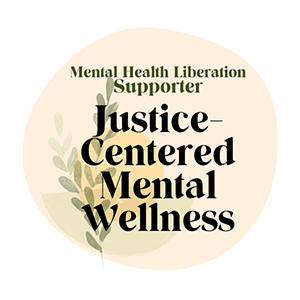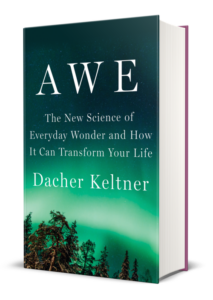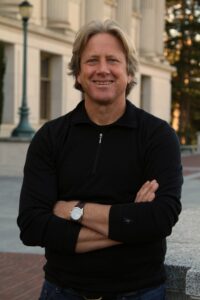Podcast: Play in new window | Download (Duration: 45:56 — 105.1MB)
Subscribe: Apple Podcasts | Spotify | Amazon Music
The neuroscience of awe as an antidote to our stress response system
In this series, Secure Relating in an Insecure World, we've covered tough topics head-on. It is, therefore, fitting that we close the series with something scientifically hopeful to help us stay in our secure selves so we can stay engaged and active as social advocates and not collapse in overwhelm.
The science of this specific feeling of awe has garnered much attention for good reason. Our guest today has spent decades exploring the sensation and documenting how to develop it in everyday life. We have all experienced these small moments that allow us to shift our mindset away from ourselves and into something so bigger. Co-hosts Sue Marriott and Dr. Ann Kelley discuss the power of awe with guest expert Dr. Dacher Keltner where they explore the science, the mystical and the hope of awe as an inspirational tool for collective healing.

“You can be outdoors by yourself, you can be listening to an amazing passage of music, you can think about somebodywhose life really inspires you. You have this urge to connect, to be part of community, to be good to other people, to share with other people, to make the world and your community a little bit better – that tells us something fundamental about the DNA of Awe.” – Dr. Dacher Keltner
Time Stamps for Awe
2:15 – What is awe?
3:31 – Physiology during moments of awe
8:21 – One of Dr. Keltner's most striking discoveries about awe
8:57 – Understanding everyday awe
10:11 – The role of curiosity in awe
13:31 – The power of music
14:27 – The 8 wonders that bring us awe
21:20 – Collective effervescence
25:38 – Alan Cowen & Dacher Keltner's experiential maps
27:36 – Awe in animals
32:16 – How awe can sometimes lead you astray
40:17 – Using awe as a tool for younger generations
Resources for today's episode on the feeling of “awe”
DacherKeltner.com – Personal website full of research, books, videos, and other resources
Greater Good Science Center – Resource center with podcasts, quizzes, articles & videos
Science of Happiness – Podcast by the Great Good Network
AlanCowen.com – Visuals of mapping emotion
About our Guest – Dr. Dacher Keltner
Dr. Keltner is one of the world’s foremost emotion scientists. He is a professor of psychology at UC Berkeley and the director of the Greater Good Science Center. He has over 200 scientific publications and six books, including Born to Be Good, The Compassionate Instinct, and The Power Paradox. He has written for many popular outlets, from The New York Times to Slate. He was also the scientific advisor behind Pixar’s Inside Out, is involved with the education of healthcare providers and judges, and has consulted extensively for Google, Apple, and Pinterest, on issues related to emotion and well-being.
We support mental health access to those traditionally left out of mainstream healthcare and use a portion of the income we receive from corporate sponsors to do just that! We can only do that with the help of our Patrons – joining as a TU Neuronerd Podsquad premium subscriber, you support this mission and get a dedicated ad-free feed plus occasional very cool and unique study opportunities, reading groups and who knows what else may come! We invite you to join our community. Click here to join!
Click here for Awe – Dr. Dacher Keltner – Transcripts

Please consider giving to Mental Health Liberation
We support mental health access to those traditionally left out of mainstream healthcare and use a portion of the income we receive from corporate sponsors to do just that! We can only do that with the help of our Patrons – joining as a TU Neuronerd Podsquad premium subscriber, you support this mission and get a dedicated ad-free feed plus occasional very cool and unique study opportunities, reading groups, and unique surprises! We invite you to join our community. Click here to join!
Mental Health Liberation is our charity of choice – please consider giving whatever you can to support mental health access for those traditionally left behind and support training for BIPOC therapists.















